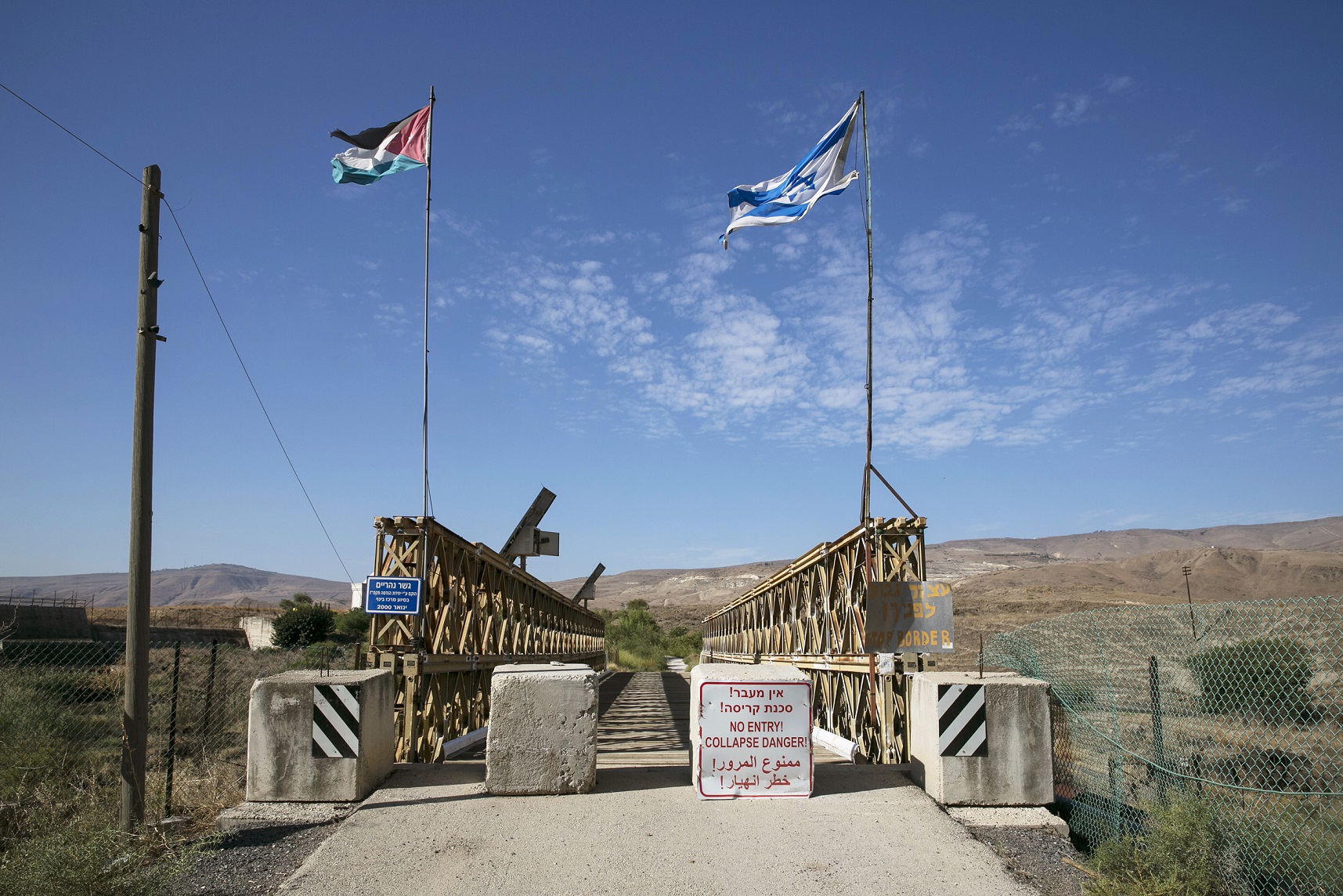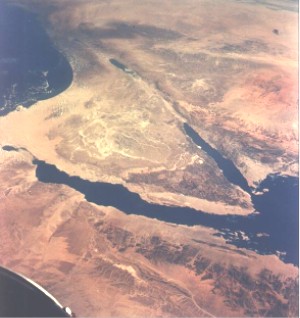Oded Eran

Jordan’s perennial water plight is one of the central reasons for the kingdom’s economic weakness and its dependence on external suppliers. It is perhaps symbolic that the water issue appears in the peace treaty with Israel (Article 6) before the question of Jordan’s status in East Jerusalem (Article 9). Since the treaty was signed in 1994, Jordan’s situation in this critical area has only worsened, due to an influx of two waves of refugees, from Iraq (over 300,000) following the US invasion in 2003, and due to the Arab Spring in the previous decade, which brought over a million Syrian refugees into its territory. It is very doubtful whether these two migrant populations will ever return to their countries of origin.
The demographic changes that were imposed on Jordan and a number of arid years have underscored the need to formulate a strategic solution to its water problem, exceeding in scope the arrangements defined in Annex II of the peace treaty, which focus on the regular supply of water from Israel to Jordan and sharing the Yarmouk River, which flows along the northern part of the border between the countries. These arrangements refer to several dozens of millions of cubic meters per annum, while Jordan’s water deficit amounts to half a billion cubic meters annually.
In these circumstances, it is clear that in the absence of groundwater and rainwater collection sufficient for potable water, desalination of sea water remains the only solution that can be comprehensive and long term. In the choice between desalinating Red Sea water and transporting it northwards to Jordan’s large urban centers, and desalinating Mediterranean water and transporting it from the Israeli coast to Jordan, a much shorter route, Jordan prefers the longer and more expensive route. This included rejection of the financially unviable and empty proposal of the Seas canal (Red Sea to Dead Sea), which excited those who paved the way for peace between Israel and Jordan over twenty-five years ago, and was also the outcome of deep mutual distrust between the current Jordanian and Israeli leaderships. The distrust, which is reflected in the complete disconnect between the countries and the absence of any dialogue between them on central issues, harms their ability to reach smart joint decisions and optimal solutions, with consequences for the Palestinians as well.
While the Red-Dead canal project quickly lost its luster, in part because the various feasibility studies were not encouraging, Jordan continued to view it as one of the fruits of peace that Israel denied it. The Memorandum of Understanding signed in 2015 by the two countries (and with the Palestinian Authority) illustrates the double failure – of Jordan, which failed to fully realize the lack of financial feasibility of the project to supply drinking water to its urban center of gravity, over 300 km from the desalination site; and of Israel, which failed to offer a proposal that would provide a political and economic strategic alternative in response to Jordan’s concerns. The MOU deals mainly with the desalination of 80 million cubic meters in Akaba for use in Israel and Jordan, and the sale of 50 cubic meters from Israel to Jordan south of the Sea of Galilee. With no technical link to other understandings between Jordan and Israel, the MOU also stipulates that 20-30 million cubic meters of desalinated water from the Mediterranean will be sold to the Palestinian Authority. The final sentence states that this MOU does not constitute an understanding regarding the development of the full Red Sea-Dead Sea project. The MOU was signed by the water ministers of the Palestinian Authority, Jordan, and Israel, and witnessed by representatives of the United States and the World Bank.

This MOU is a collection of partial solutions for emergency water needs, emergency political needs, and attempts to promote a non-viable project. But to this day, it has fanned the flames of the Jordanian leadership’s distrust of the Israeli leadership. Furthermore, Israel finds itself buying water that it does not need in the Akaba-Eilat area, Jordan finds itself with a desalination facility that does not meet its water needs in the north of the country, and the Palestinians and Jordanians continue to harbor the illusion that the MOU will help them – for Jordan, by promoting the Red-Dead canal, and for the Palestinians, whose mention in connection with the Red Sea-Dead Sea project reinforces their claim that the border of the future Palestinian state lies along the Dead Sea.
The accelerating Green Revolution and the decision by the great economic powers – the United States, the European Union, and China – to promote the move to renewable energy also affects the Middle East, and creates a historic opportunity for new thinking about the link between energy, water, environment, and political stability. At the interim stage, until completion of the move from energy derived from “traditional” sources such as oil and particularly natural gas from Israel’s economic waters, desalination of water from the Mediterranean for Israel, Jordan, and the Palestinian Authority will continue, mainly using natural gas.
At the same time, during the transition to green energy, which must necessarily be done in stages, Israel will start generating electricity from solar power and purchase such electricity from Jordan. This will create synergy and dependence, and help to address mutual concerns over the exploitation of infrastructure dependence. It will also promote efforts toward a comprehensive economic solution to the permanent shortage of drinking water in Jordan and the Palestinian Authority, and the move to the era of green energy.
The international community should play a key role in promoting regional thinking and the creation of the necessary political and economic conditions to achieve and implement a regional agreement. Concurrent with a thorough and unbiased examination of the options for transporting desalinated water to Jordan and the Palestinian Authority, the international actors (the United States, the European Union, the World Bank and other international financial institutions) must formulate a system of mutual guarantees, whereby Jordan and Israel will guarantee to an international consortium that they will not cease supplying their share of the project under any circumstances, while the consortium will guarantee to both Jordan and Israel that the supply of desalinated water or solar energy will continue in all circumstances. This will help to neutralize the element of personal relations between the leaders of the countries involved or the possibility of deterioration in their political relations, and thus minimize the risk of disrupting the flow of electricity or water.
So far Israeli governments have refrained from seeking comprehensive solutions involving the water-energy combination, in the absence of a broad strategy for dealing with narrow interests and pressure groups, or by clinging to outdated concepts about dependence on neighboring Arab countries. However, the combination of the Abraham Accords and the momentum of the Green Revolution in countries that produce oil and gas facilitates a review of these concepts in order to create cooperation in infrastructure projects – water, energy, and transport – and services such as tourism.
“Road Map for a Low-Carbon Energy System by 2050,” published by Israel’s Ministry of Energy in mid-April 2021, is a significant contribution to the public and institutional discussion on this important topic of the link between energy and quality of life for future generations. It points to the need to reinforce energy links, particularly regarding the trade in clean/solar electricity with neighboring states and with countries round the Mediterranean Basin. But the reference to Jordan, for example, does not include the subject of water or the role that the international community can play in assuring mutual and reliable implementation of arrangements. The absence of government organs engaged in outlining Israel’s political-security strategy from the teams that prepared the document results in insufficient reference to these considerations and their contribution to the subject.
The National Outline for Energy Infrastructures for 2030-2050, approved on May 4, 2021, is another important step in the energy revolution, but it too errs by looking at Israel as a “geostrategic energy island,” since it omits reference to the possibility that some of the areas designated in Israel for promotion of the program could be replaced by the purchase of solar electricity from neighboring countries. The plan completely ignores the subject of water in the Israeli and regional context. This important strategic aspect could be supplemented by Israeli government mechanisms engaged in planning foreign and defense policy that were absent from the discussions in the Ministry of Energy and in the National Council for Planning and Zoninbg.
Once Israel has a permanent government, it must examine the deteriorating relations between Israel and Jordan from a bilateral, regional, long-term, and multidisciplinary viewpoint, and thus avoid improvised solutions. The Jordanian government is also guilty of decisions that harmed regional cooperation that could benefit Jordan itself. An example is the decision not to extend the arrangement with Israel regarding the Tzofar and Naharayim enclaves, which did not bolster Israel’s trust in Jordan’s readiness to overcome the voices of opposition to normalization between the states.
No comments:
Post a Comment